Election Dissection 2015
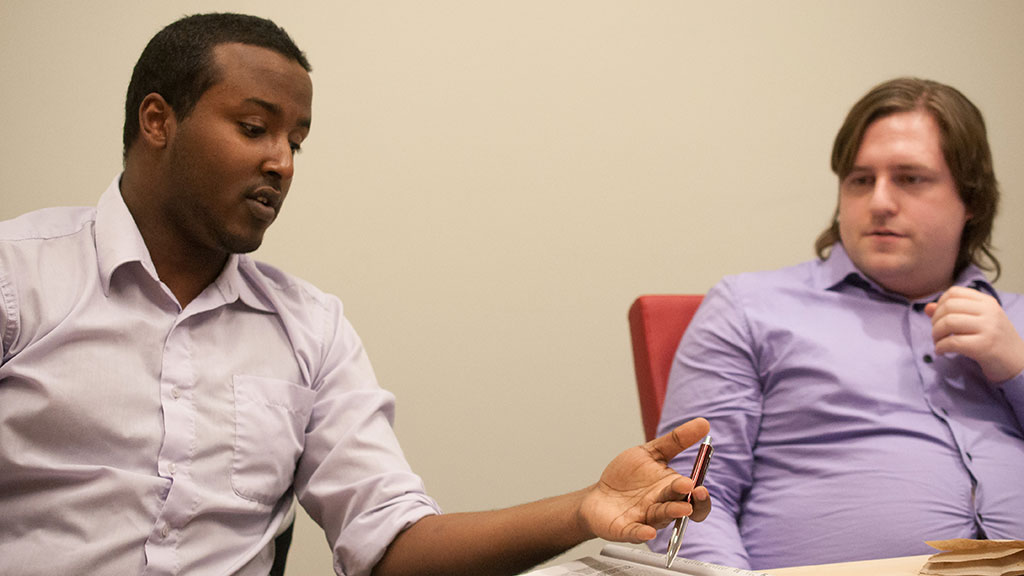 Kate Black
Kate BlackAh, Students’ Union elections. Whether you think it’s the best or worst time of the year, there’s no denying things can get a little complicated. But there’s no need to get overwhelmed before hitting the ballot box when you can get the inside scoop on who’s who right here. Let our panel of three SU experts weigh in on who will — and who should — represent you in 2015-16.
The Panellists

Bashir Mohamed is a former Faculty of Arts student councilor who ran for SU president in 2014. He’s been involved in the SU for years, but is now off to South Korea and is looking forward to retiring from SU governance.
Ryan Bromsgrove was The Gateway’s Opinion Editor in 2011–12, Editor-in-Chief 2012–13 and Business Manager 2013–14. During his time writing for the paper, had a special place in his heart for complaining about student politics.
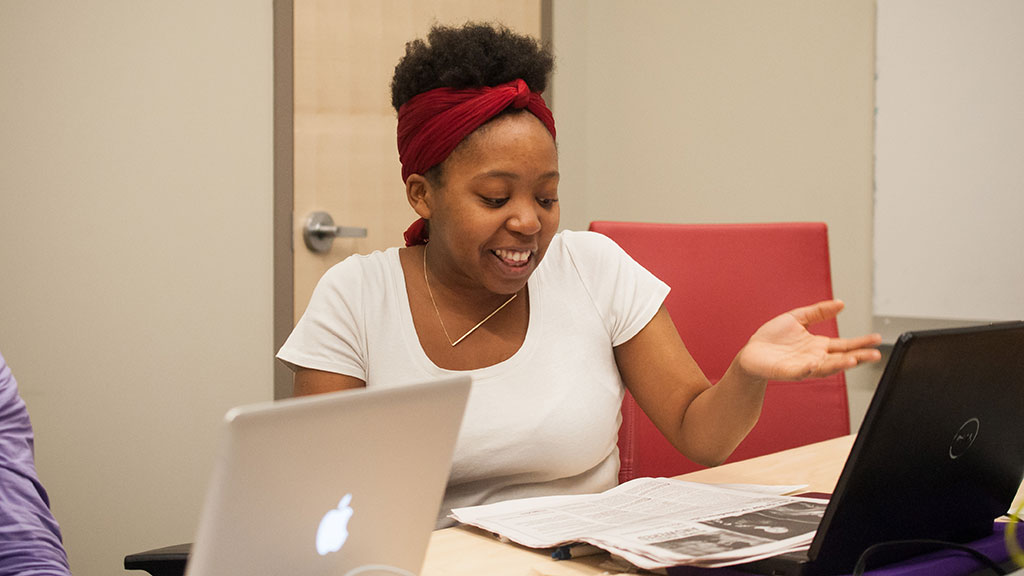
Sharon Mvundura is a recent Department of Political Science graduate. She spent many years as an executive for the Political Science Undergraduate Association and was a longtime Campus Food Bank volunteer. She now spends her time working full time at the Campus Food Bank and keeping up with the latest student news, but maintains that SU elections are her favourite time of the year.
President

Panellists unanimously agreed that Khinda is more than qualified for the SU throne.
“Even if she’s unopposed, she’s still a person who I think would still be like ‘I’m going 100 per cent,'” she said. “There were some candidates that were finishing their platforms the morning of Monday on the sixth floor, and Navneet wasn’t one of them.”
Mohamed said her platform is similar to her VP (External) platform from last year, but that her platform point of reviewing the Student Code of Conduct is a unique and valuable move — one Mvundura said the university hasn’t yet seen from an SU presidential candidate.
“I don’t think many candidates really speak about (changing) that,” Mohamed said.
He also commended her for advocating for a review of how the U of A handles sexual assault.
Mohamed said Khinda is a strong public speaker who would be confident in speaking on behalf of students to the provincial government.
“She’s really good at debating everything, like Petros,” he said, alluding to the 2013-14 SU President.
Bromsgrove said he’s been following her political progression for years, and believes she would be a great face of the SU.
“I would take Navneet for President over really anyone in the executive positions now,” Mvundura said.
The panellists expressed general apathy for the joke candidates and their lack of creativity, but
Bromsgrove commended Omnibot for having a banner in SUB. All panellists agreed joke candidates are only worth it if they actually try and produce a decent campaign.
“Frank Daniels, he’s just a guy in a T-shirt,” Mohamed said. “Even the dog last year was kind of creative.”
Will Win
Khinda — three votes
Should Win:
Khinda — three votes
VP (Operations and Finance)

Panellists agreed that VP (Operations and Finance) candidates Cody Bondarchuk and Samer Sleiman were “polar opposites” in terms of character and personality in forums and on paper.
Mohamed said Sleiman’s “aggressive, yet laidback” nature during forums was reminiscent of his time on Students’ Council this year, which may “turn off” some voters.
Bondarchuk on the other hand, comes off as “super friendly,” and “somebody who could go around and get free hugs.”
“This is the biggest race of perceptions,” Mohamed said.
On paper, the panellists noted the differences in focus of each candidate platforms.
Mohamed noted that VP (Operations and Finance) in the past were either service-based, which directs resources to students, or business-based, which aims to generate profit.
The student vote could come down to two different approaches Bondarchuk and Sleiman could bring to the SU.
“They have two very different approaches,” Mvundura said. “It might even be a little over-the-head for some people.”
And while the panellists appreciated Sleiman’s intention of translating SU Bylaws into French, they didn’t see the purpose.
“When you translate the bylaws, are you going to get the precision that the bylaws have?
That’s going to be difficult,” Bromsgrove said.
“But really, do students really read the bylaws?” Mvundura added. “I really like the idea, but only SU people do.”
The panellists also questioned Bondarchuk’s point of creating an affordable food and grocery aisle on campus. While they appreciated his intention, Bromsgrove noted that grocery food aisles have been attempted in SUB, but never took off. Instead, Bondarchuk should have focused on improving the popular bi-weekly SUB Farmer’s Market.
But Bondarchuk’s point on “expansive and attainable awards and scholarships” drew praise from the panellists.
“(Bondarchuk’s) platform is very student-centered, which is a big contrast from Sleiman,” Mvundura said.
The panellists also challenged each candidates’ experience, and how that would translate to the VP (Operations and Finance) portfolio. Sleiman, who has mentioned a “business he started three years ago,” while campaigning, drew questions from the panel. Bromsgrove called Sleiman’s business “ambiguous,” as Sleiman has yet to fully elaborate on it.
Bondarchuk, who has acted as Safewalk Director for two years, hasn’t been using his experience at the SU service, which surprised Mohamed.
“He manages hundreds of volunteers, he already has relationships with the SU and he knows all the people he’ll be working with,” Mohamed said. “He doesn’t have to work on building that repertoire.
But while Bondarchuk has ample experience as Safewalk Director, Mvundura wondered how transferable those skills are.
“I was kind of surprised with (Bondarchuk’s) move to run for VP (Operations and Finance),” she said. “I think he would be better suited for (VP Student Life).”
Since the SU sets their operating budget before the VP (Operations and Finance) even takes office, making promises at this point aren’t realistic at this time, the panellists said.
“It’s not like they’re going to do any of these platform points, but these platform points show what kind of person they are or what kind of manager you want,” Mohamed said.
Will Win
Sleiman — two votes
Undecided — one vote
Should Win
Bondarchuk — two votes
Undecided — one vote
VP (Student Life)
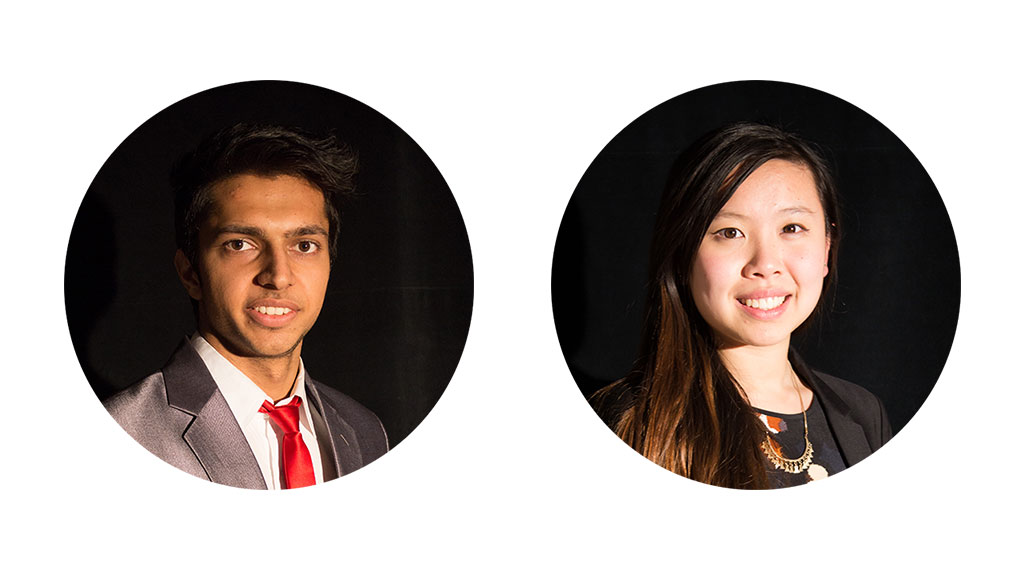
Panellists found this year’s VP (Student Life) race to be a battle of two extremes: platform- and experience-heavy Vivian Kwan and fresh-faced Param Singh. The group quickly wrote off Singh as a legitimate competitor, and focused most of their conversation on questioning Kwan’s extremely detailed website outlining her goals.
Mvundura appreciated plenty of the material on Kwan’s platform, including targeting mental health issues with international students and expanding Unwind Your Mind to more campus buildings. She shared sentiments with Mohamed and Bromsgrove, though, that it’s unlikely Kwan achieve all of her platform points.
Bromsgrove said that the platform is “overkill.” He questioned whether her “mental health packages,” which would provide professors with suggestions on how to “better engage” students, truly confronts the issue of mental health on campus.
The panel took particular interest with the “experiences” section on her website, where she outlines the variety of groups and committees that she has sat on in recent memory.
Mohamed noted that just because she’s proved her worth in “high-up positions,” she may not necessarily be able to connect with students as VP (SL). Though Kwan has experience with the SU as an Science Faculty Councillor, Mohamed was concerned by her lack of contributions to council.
“I’ve never heard her speak (in council),” Mohamed said. “I’m surprised that she’s running for exec because on council she didn’t speak up on any of the major debates.”
Mvundura noted that not taking initiative to push her ideas forward could detriment her abilities to achieve her platform points — especially in regard to her goals to include more alcohol-free events at Week of Welcome, and re-attempting Break the Record.
“A lot of her work as VP (SL) is working with services and programming and venues, and in those departments there’s a lot of people who have been working there for a really long time. And if you really want to make changes, you have to sometimes be a little strong and try to push your initiatives forward. Is she going to be able to do that? I don’t know,” she said.
On the other hand, the panel agreed that Singh seems unprepared to run for an executive position. Mvundura felt that his motivations for running appear to be “random.” She found it concerning how when asked about possible improvements to be made to residence in the Gateway’s Q&A, he replied by stating that the residence situation is “pretty good.”
“It doesn’t seem like he’s done any background work on the things that seem important,” she said.
But Mohamed said the thinks it’s “kind of cool” to see an “average student” run among the hack-heavy group of candidates this year.
“I’m kind of glad he ran this year, because if he didn’t, every candidate would have been coming from that SU circle, or that stereotypical path to getting elected,” he said.
Will Win
Kwan — three votes
Should Win
None of the Above (NOTA) — three votes
Vice-President (Academic)
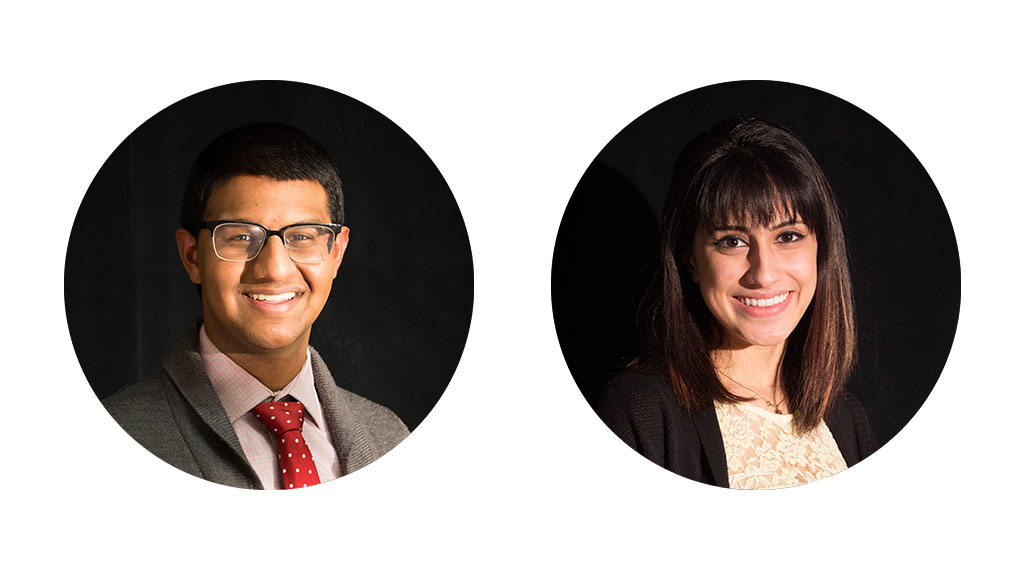
The panel felt generally uninspired by this year’s VP (Academic) race, mostly due to the glaring similarity between the two candidates. Both Shakiba Azimi and Fahim Rahman currently hold executive positions in the Interdepartmental Science Students Society (ISSS), the Faculty of Science’s student association — Rahman being President, and Azimi holding Rahman’s former position as VP (Academic) of the organization.
Mvundura and Mohamed agreed that both candidates missed an opportunity to address issues in Students’ Council as a part of their platform, in response to the paltry attendance records of councillors this past year. Bromsgrove said he wishes the candidates opened a greater conversation on how education is delivered on the U of A campus, which he thinks is traditionally a general issue with the position.
“They’re dancing around ‘oh, textbooks are bad,’ but can we have a VPA who really talks publicly and strongly about why textbooks are bad what are the alternatives?”
Bromsgrove said. “I want to see a VPA who not only knows what they’re talking about, but who’s thinking ‘outside the box’ as education as a whole.”
Mvundura said Rahman’s platform is significantly more general than Azimi’s, while Bromsgrove took issue with how his goals address problems without offering viable solutions. Mohamed noted that Rahman is running a campaign fairly similar to his platform from last year, but notes that is works for him — after all, he received the most first-round votes in last year’s election.
Mvundura praised Rahman’s initiative in his platform to evaluate already-existing mental health options on campus, instead of introducing new initiatives.
“Even though his platform points are very general … he would be a good person in those committees,” Mvundura said, noting that the position traditionally requires the executive to sit on a variety of committees.
Panel members were disappointed by Azimi’s lack of website and use of a Facebook page instead to post her platform points. But, they were impressed by how her platform was more specific than Rahman’s — notably, her promises to encourage professors to use course-packs instead of textbooks and release syllabi in Beartracks, and create a centralized mental health website.
Mvundura thought her presence in forums could give her an edge on the electorate.
“I think Shakiba comes off very strong in forums. Very articulate, very on it. Not that Fahim doesn’t come across as articulate, but I think in forums so far Shakiba comes across as more articulate,” Mvundura said.
Will Win
Rahman — three votes
Should Win
Rahman — one vote
Azimi — one vote
None of the Above (NOTA) — one vote
VP (External)
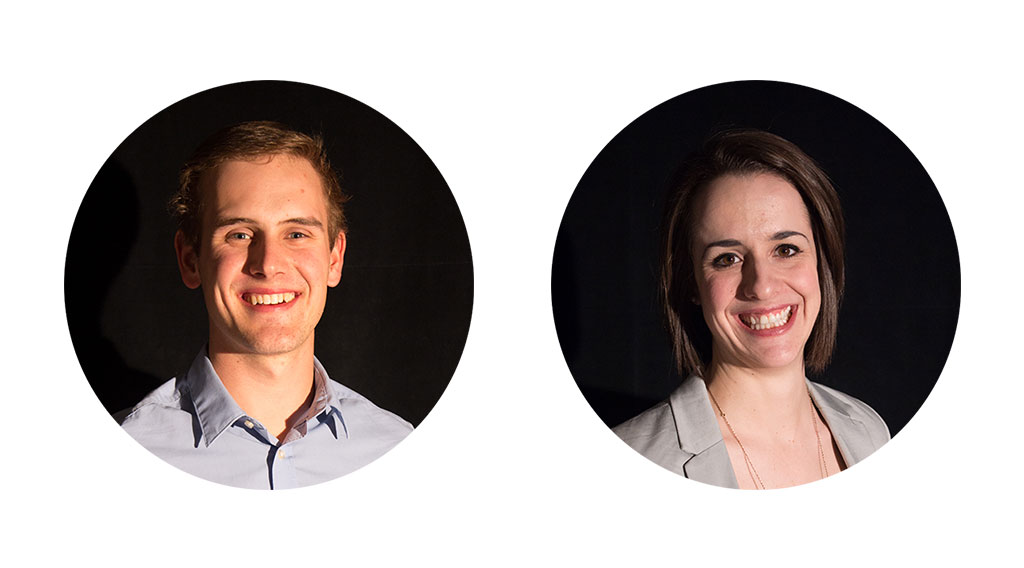
In a closely contested race with two very different opponents, panellists agreed Dylan Hanwell is the frontrunner because of his experience in student governance and focus on issues more closely related to the External position. Panellists agreed Hanwell has run a solid campaign, and has learned from his mistakes one year after his first attempt at VP (External) against Navneet Khinda last year.
Panellists said Blue Knox’s platform more closely resembled a platform for Vice-President (Student Life), and were confused about Knox’s mental health focus. Knox’s platform states she wants to make a provincial mental health strategy, which panellist Mvundura said is good in theory but is an idea better suited to VP(SL.) When faced with an uncertain provincial economy and upcoming election, she said candidates would be better off focusing on the issues more focused on the position for which they’re vying.
Mohamed said she would have been smart to focus more on the link between affordability and mental health, which she has mentioned in panels, but hasn’t explored deeply. Regardless, Mohamed said she outshone her opponent in this regard.
Bromsgrove said Knox’s advocacy is “buried” in her portfolio. Mvundura added Knox has run on a campaign where she has tried to be realistic in her promises for students, but said that might not have been the best approach for a race with such high expectations in the coming year.
“I know she’s trying to play the card of like ‘you don’t want to be like the other ones of making big promises,’” Mvundura said. “Yeah, we know you can’t do everything, but tell us what you can do.”
Panellists agreed Knox is a well-known face on campus and that her campaign has been made highly visible to students, which could garner her votes. Mohamed said he was disappointed in her election video, which he said was “just dancing,” and that her focus on building relationships might not be what the student body needs for the upcoming year. “A lot of bridges are going to be blown up in the next few months, so that strategy is not going to help,” he said. “I think we need somebody who can just take the gloves off.”
Panellists applauded Hanwell for his slightly more “radical” approach to campaigning.
“He’s coming back smarter and better,” Mvundura said, acknowledging him for his strong stance on renewing the tuition cap, which she said Knox has somewhat overlooked. “Last year I watched Dylan and I thought he put on a good campaign when he was going against Navneet,” Bromsgrove added. “I like a guy that comes back for a second year. “
Mvundura said the weakest point of his platform is his focus on quality insurance policy. “I get the idea, but who judges the quality? It’s just all very vague, is it really applicable?” She asked.
Mohamed said that although he has disagreed with Hanwell in the past, he’s in tune with what students expect from their executives.
“What I like about Dylan is that even though I disagree with his principle, he’s very direct,” he said. “He says directly in his platform, ‘students are consumers so they should have consumer protection.’ And because he has that principle, that’s what I like about him versus Blue, who is a little more grey and back and forth.”
Mohamed said the external race is about “what kind of person you want to fight for you.”
With his platform focused on attainable goals and his extensive experience in policy and having worked for the provincial government, panellists agreed Hanwell leads the race.
Will Win
Knox — one vote
Undecided — two votes
Should Win
Hanwell — three votes
Undergraduate BoG Rep
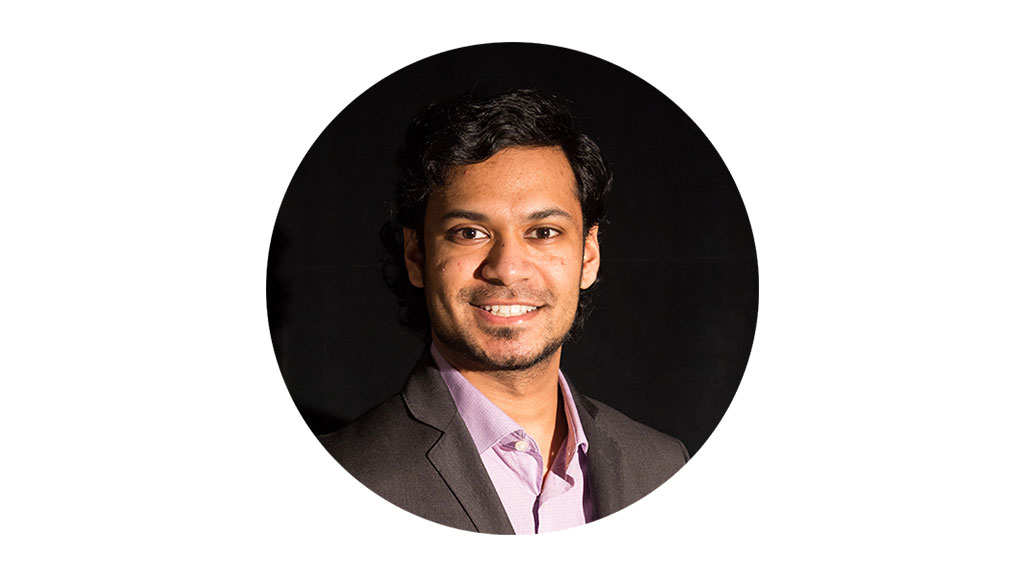
The panel was vocally unimpressed with law councillor Azhar Khan’s campaign as the sole Undergraduate Board of Governors’ Representative candidate. Khan, a second-year law student, briefly lists his platform on a Facebook event, which left the pundits wanting more.
“He has very weak platform points, if you can even call them that,” Mvundura said.
Bromsgrove was critical of Khan’s main platform point, in which he calls for a “united front” between the three student representatives on the board. He raised concerns that he may sacrifice his own principles in favour of unity.
“Not everything that the board’s going to be discussing is going to be directly relate to students in a way three student reps voting differently would confuse them,” he said.
Bromsgrove also found his second point, opting for greater financial transparency from the board, unrealistic, stating that “the board isn’t going to be any more transparent than it is now.”
The panel raised eyebrows at his third platform point, that he brings a “fresh perspective” to the board as both a former student of the University of British Columbia and as a student currently in a professional program. Mvundura called the point “elitist,” while Mohamed raised concerns over whether this attitude will perpetuate the current trend of law students becoming the BoG representative.
Mohamed was “surprised” with Khan’s lacklustre campaign, stating that Khan seems to be more comfortable speaking in council than in forums, where he often flips through cue cards. Mvundura and Bromsgrove questioned whether his awkward public speaking skills would impact his role on the board, but Mohamed maintained that Khan seems to be confident in the smaller, council setting.
“The funny thing is, on council, he’s the opposite of this. He takes strong opinions on issues like tuition,” Mohamed said. “He’s not afraid to take stances.”
Ultimately, the panel wasn’t sold on his campaign.
“He hasn’t shown us anything,” Mvundura said.
Will Win
Azhar Khan — three votes
Should Win
None of the Above (NOTA) — three votes
Single-source beverage plebiscite
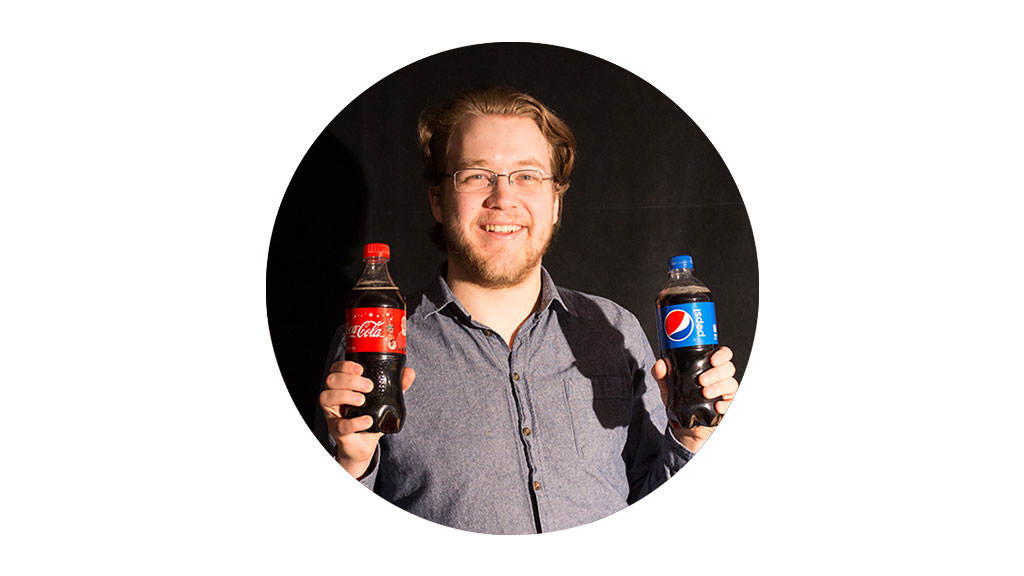
Panellists said they took issue with how the single-source beverage plebiscite was presented to students.
Mohamed said the plebiscite was hastily passed through council at the last minute, at an emergency council meeting held right before elections began. He also took issue with the wording of the plebiscite, arguing the ‘yes’ side has been presented in a misleading way, while the ‘no’ side has had no representation. He said having one beverage company monopolize campus means students would miss out on other opportunities, such as having Red Bull sponsor a student group event.
“It’s an issue student care about, but the problem is it’s been presented in the worst possible way,” Mohamed said. “Beyond that, I’m just very disappointed in the way this was done. The process wasn’t transparent at all.”
Mvundura said regardless of how students vote on the plebiscite, the decision might already have been made by the SU. “It doesn’t really affect their ultimate decision, they perobably already know which way they’re going to decide,” she said. “I would rather them just do it without telling any of us than pretend we have a voice.”
Will It Pass
Yes — three votes
Should It Pass
No — three votes
The Landing referendum
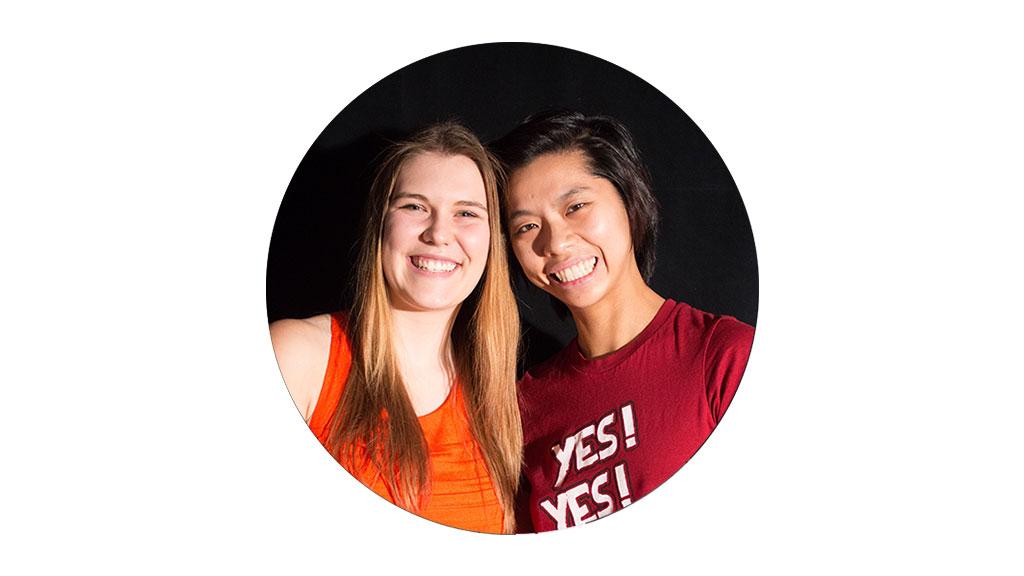
A safe space on campus supporting gender and sexual diversity, The Landing is presenting a referendum vying for $1.50 per semester from undergraduate students to fund programming and workshops.
Mvundura said the service is an asset for the SU and is deserving of enhanced support from students, despite some criticism from those who in the community who say the service won’t be widely used.
Mohamed commended The Landing for campaigning hard during election season and actually pleading their case at forums.
“They are putting the effort into having this, so I think it’s very commendable,” he said.
Bromsgrove said the group already has a solid base and have a plan of how to expand were they to get the financial boost from students. “I say give them a chance,” he said, adding students have the opportunity to opt out of paying the extra fee.
Will It Pass
Yes — two votes
Undecided — one vote
Should It Pass
Yes — three votes



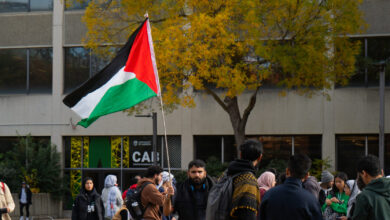

This is possibly the most poorly edited article I have ever read. This is a fantastic, intelligent discussion, but it’s marred by the fact that no one bothered to proofread it before posting.